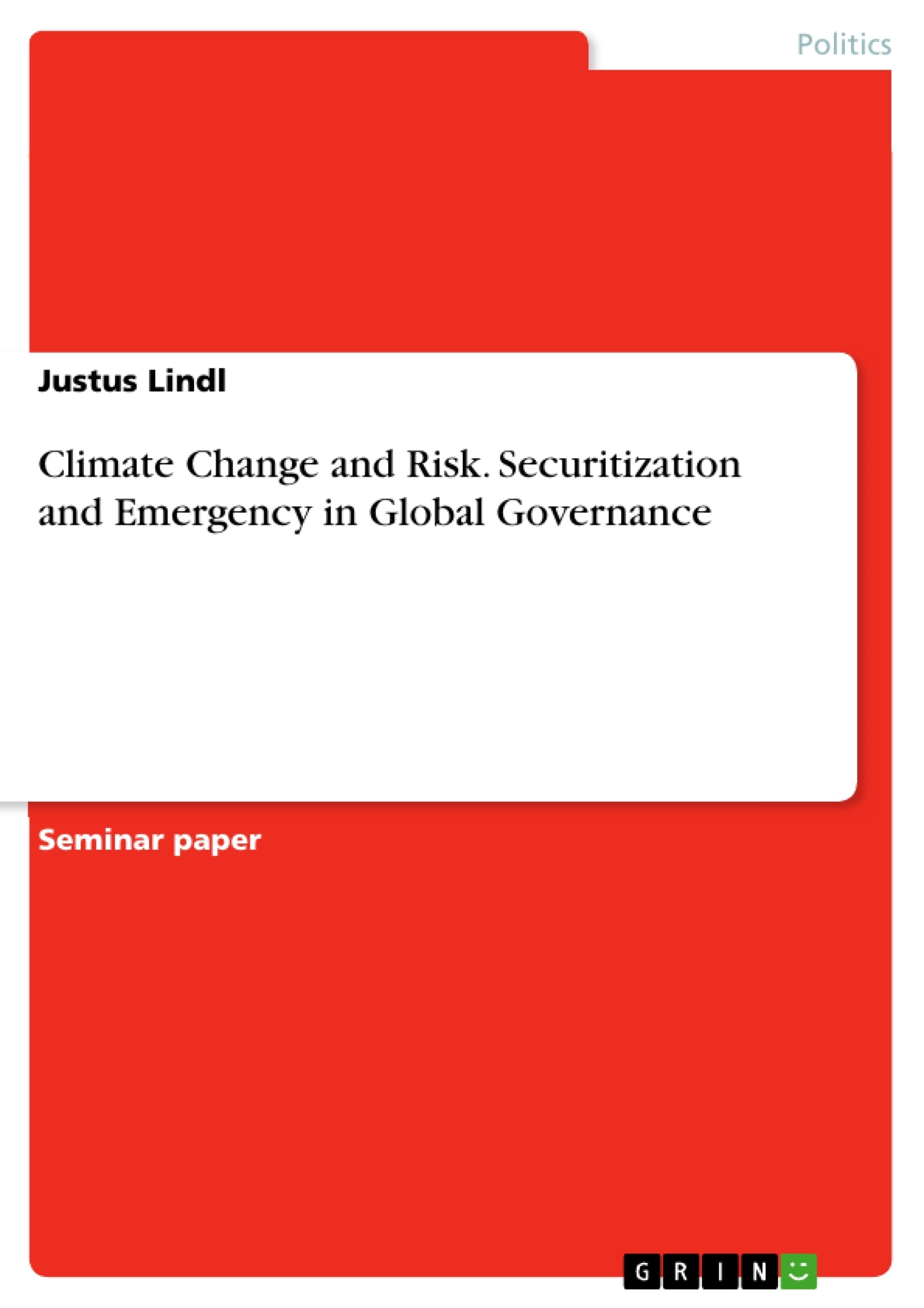“Climate change in IPCC usage refers to a change in the state of the climate that can be identified (e.g. using statistical tests) by changes in the mean and/or the variability of its properties, and that persists for an extended period, typically decades or longer. It refers to any change in climate over time, whether due to natural variability or as a result of human activity.” When such a change was seen in the past as a purely natural event, humankind now recognizes its own influence on the Earth’s ecosystem. Since the 1970s academics and scientists are warning of a Global Warming caused by human activities by several publications like The Limits to Growth (1972). The issue became ultimately the public attention with the release of former US Presidential Candidate Al Gore’s movie “An Inconvenient Truth” honored with an Academy Award in 2006 and the winning of the Nobel Peace prize by IPCC and Al Gore. For the matter of easy understanding I will put Climate Change synonymous to the recent phenomenon of Global Warming. Being a huge challenge for humankind there is a lively debate about the way facing it, mainly in which category of the trilogy politicization, securitization and riskification it falls. For such a categorization it is important to ask for the nature of Global Warming, so whether it is or should be treated as a political issue, a threat or a risk. Is climate change thus governed as a threat or a risk? Can we witness a successful securitization? Or is it more convenient to classify Climate Change into the concept of riskification? After providing the reader with each conceptual framework, I will challenge the theories with the issues of Climate Change. But first and foremost it will be needed to explain the relevance of Climate Change as an issue within security studies.
Inhaltsverzeichnis (Table of Contents)
- Introduction
- Climate Change as a security issue
- The conceptual framework of securitization
- Securitization of Climate Change
- Securitizing Moves
Zielsetzung und Themenschwerpunkte (Objectives and Key Themes)
This paper analyzes the issue of climate change within the framework of security studies. It explores whether climate change can be categorized as a threat or a risk, and if it has been successfully securitized. The paper examines the conceptual framework of securitization, particularly as applied to environmental issues, and analyzes past securitizing moves related to climate change.
- The relationship between climate change and security
- The concept of securitization and its application to environmental issues
- The role of scientific epistemology, intergovernmental organizations, and states in securitizing climate change
- The effectiveness of securitization strategies in addressing climate change
- The potential for alternative approaches, such as riskification, to address climate change
Zusammenfassung der Kapitel (Chapter Summaries)
- Introduction: This chapter introduces the topic of climate change and its relevance to security studies. It defines climate change and its causes, outlining the growing scientific consensus on human-induced global warming. The chapter highlights the debate on whether climate change should be categorized as a political issue, a threat, or a risk.
- Climate Change as a security issue: This chapter explores the multifaceted impacts of climate change on security, examining both its direct effects on environmental security and its indirect influence on political, societal, and economic security. It analyzes how human activities contribute to global warming, emphasizing the significance of the Anthropocene era and the need to address this challenge within the framework of security studies.
- The conceptual framework of securitization: This chapter introduces the Copenhagen School's concept of securitization and desecuritization. It explains the process of securitization, emphasizing the role of a securitizing actor, a securitizing move, a referent object, and a legitimating audience. This chapter highlights the concept's focus on existential threats and the justification for extraordinary measures in addressing such threats.
- Securitization of Climate Change: This chapter analyzes the application of the securitization framework to climate change within the environmental sector. It examines the grammar of sustainability used to frame climate change as a security issue, emphasizing the global nature of the problem and the need for international cooperation. The chapter explores the concept of environmental security and its relationship to the survival of civilization.
- Securitizing Moves: This chapter examines various attempts to securitize climate change, focusing on the role of scientific epistemology, intergovernmental organizations, and individuals as securitizing actors. It analyzes the challenges in identifying a convincing securitizing actor on the global stage and the need for a shared understanding of the urgency of the issue.
Schlüsselwörter (Keywords)
Climate change, security studies, securitization, desecuritization, Copenhagen School, environmental security, global warming, Anthropocene, riskification, sustainability, intergovernmental organizations, IPCC, securitizing moves, referent object, legitimating audience.
Frequently Asked Questions
What is "Securitization" in the context of climate change?
Securitization refers to the process of framing climate change as an existential security threat to justify the use of extraordinary measures beyond normal politics.
What is the "Copenhagen School" theory?
It is a conceptual framework that analyzes how specific issues are transformed into security matters through "securitizing moves" by influential actors.
Is climate change governed as a threat or a risk?
The paper discusses whether climate change falls under the category of immediate threat (securitization) or long-term management (riskification).
What is the role of the IPCC in this process?
The IPCC acts as a key securitizing actor by providing the scientific consensus needed to frame global warming as a critical survival issue for civilization.
What does the term "Anthropocene" imply?
It signifies a geological era where human activity is the dominant influence on the Earth's climate and ecosystem, making climate change a human-induced security issue.
- Quote paper
- Justus Lindl (Author), 2014, Climate Change and Risk. Securitization and Emergency in Global Governance, Munich, GRIN Verlag, https://www.grin.com/document/278449



